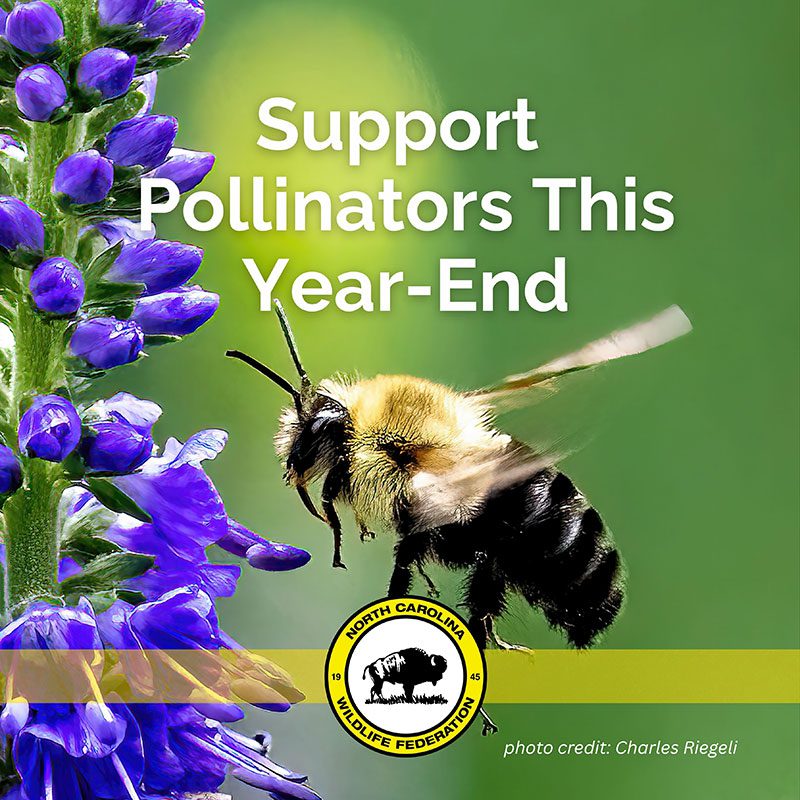Digging in the Dirt: August Chapter Highlights
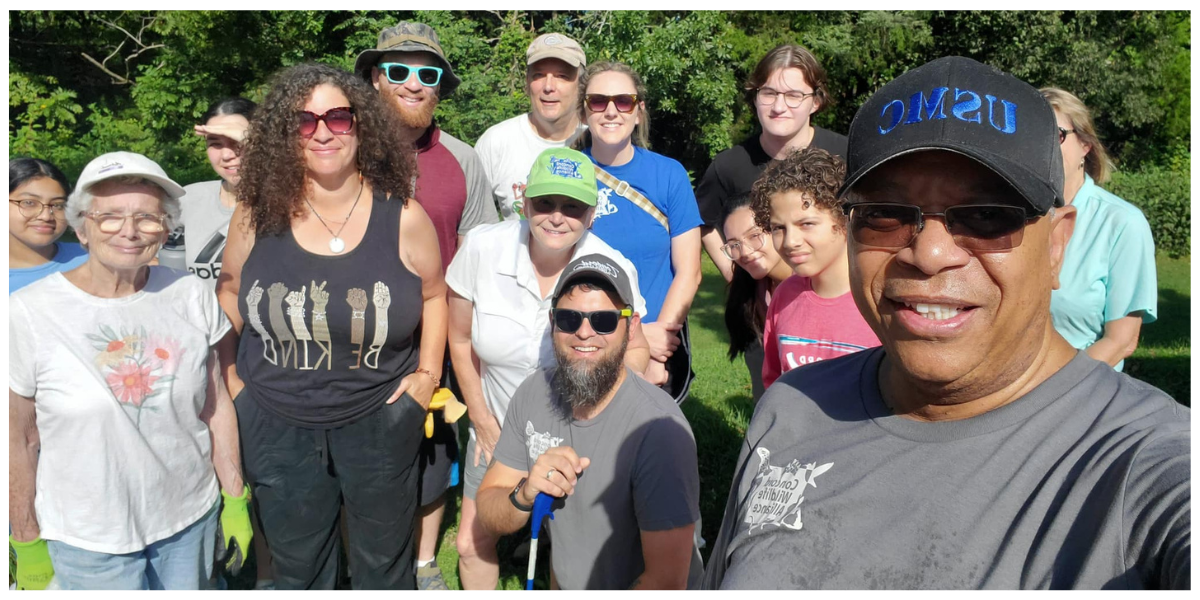
North Carolina Wildlife Federation staff and Community Wildlife Chapter volunteers did a whole lot of environmental educating, invasive removing, pollinator identifying, wildlife watching, nature exploring, litter sweeping and more in August to promote healthy wildlife habitat and inspire people to get outside. In total, 125-plus volunteers were engaged. Over 100 people were given the opportunity to connect with nature through one of NCWF’s various opportunities this month.
Explore our Events Calendar to discover where NCWF and our Community Wildlife Chapters are hosting in-person and virtual events near you. Check out a few highlights below from our conservation outreach team.
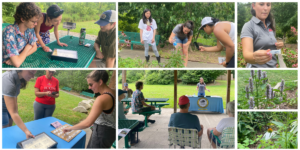
Pollinator Identification Training, July 29. NCWF and NC State’s Dr. Hannah Levenson teamed up to host a course where participants learned how to identify pollinators in their natural habitat. The group explored the many ways that pollinators are important.
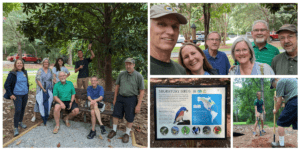
Migratory Birds Sign Installation at Crowder Park, August 3. NCWF, South Wake Conservationists chapter leaders, park staff and folks from The Jandy Ammons Foundation met at Crowder Park in Apex to install an interpretive sign highlighting birds and their spectacular migration. Huge thanks to The Jandy Ammons Foundation for making this sign and others, along with more than 20 habitat restoration projects in the Triangle possible in 2023
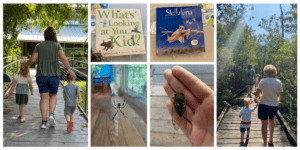
Pre-K Nature Programs at Pocosin Lakes NWR, August 11 & 25.
August 11. Youth participants compared the differences and similarities between bats and birds during a fun preschool program with a reading of Stellaluna followed by a nature walk along the Scuppernong River Boardwalk.
August 25. Youth participants listened to a reading of What’s Looking at You, Kid? and learned about the many ways that we can observe nature in our everyday surroundings. Participants then joined NCWF staff for a nature walk where we found exciting signs of nature such as a snake’s skin, cicadas, spiders and nibbled pine cones left behind by squirrels.
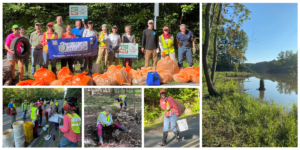
Falls Lake Mountains-to-Sea Trail Cleanup, August 12. NCWF and Friends of The Mountains-to-Sea Trail continued their cleanup effort at Falls Lake. The crew seized the morning and removed 620 pounds of garbage.
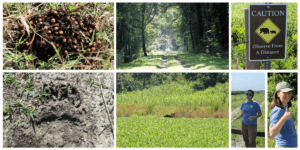
Bear Walk at Pocosin Lakes NWR, August 12. NCWF staff hosted a bear walk on the Pungo Unit of Pocosin Lakes NWR. Participants learned all about the biology and behavior of black bears and had the opportunity to see some of the largest wild black bears in their natural habitat.
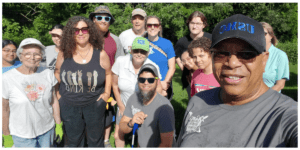
Dorton Park Cleanup, August 12. The Concord Wildlife Alliance in partnership with youth council volunteers cleaned up Dorton Park.
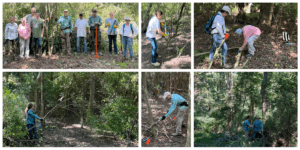
Bolin Creek Invasive Plant Removal Part 2, August 13. The Tri-County Conservationists continued their invasive removal effort at Bolin Creek in Chapel Hill. The crew removed privet and wisteria. A significant amount of land was reclaimed for native species.
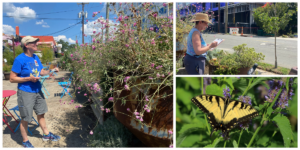
Great Southeastern Pollinator Census – Durham, August 18-19. NCWF participated in the Great Southeastern Pollinator Census. Durham sites included Sandy Creek Park, Downtown Durham Pocket Prairie, Briggs Avenue Community Garden, Blomquist Garden at Duke Gardens, Pearl Mill Nature Preserve and more! Participants helped contribute to citizen science and pollinator conservation!
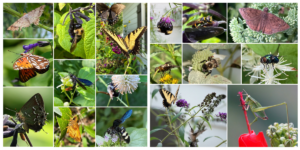
Great Southeastern Pollinator Census – Charlotte, August 18-19. NCWF and the City of Charlotte participated in the Great Southeastern Pollinator Census. Charlotte sites included Martin Street Garden, 3rd Ward Gardens, 1st and 4th Ward parks, Chantilly Ecological Sanctuary, the NoDa garden and more! Participants helped contribute to citizen science and pollinator conservation!
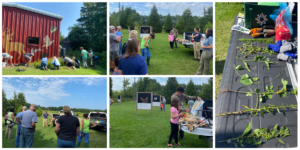
Red Wolf Program & Pollinator Garden Workday, August 19. NCWF staff and members of Wildlife Habitat Stewards of Northeastern NC came together for a fun morning learning all about red wolves followed by a weeding of the native pollinator garden at the Red Wolf Center.
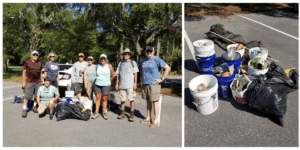
Brunswick Town Cleanup, August 19. Lower Cape Fear Wildlife hosted a litter sweep at Brunswick Town / Fort Anderson in Winnabow. The hot and sweaty crew successfully removed 56 pounds of litter from the environment.
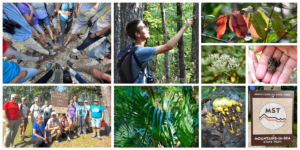
Neusiok Trail Guided Hike, August 19. NCWF hosted the Carolina Nature Coalition on a guided hike along the Neusiok Trail in Havelock. The group traveled through cypress swamps, hardwood ridges, longleaf-pine savannah and pocosin habitat. Along the way they saw an abundance of plant life and wildlife including shortleaf pines, goldenrod, boneset, bald cypresses, palmettos, frogs, spiders, birds and plenty of poison ivy!
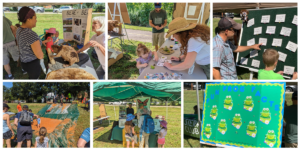
Walnut Creek Wetland Center Mud Day, August 19. The South Wake Conservationists hosted activities for kids at Walnut Creek Wetland Center’s Mud Day! The chapter had a wide variety of frog activities, plus their special exhibit all about beavers. The weather was great and the kids had a blast!
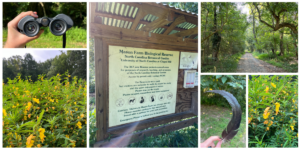
Mason Farm Biological Reserve Bird Walk, August 20. The Tri-County Conservationists hosted a bird walk at the Mason Farm Biological Reserve in Chapel Hill. The group saw 29 species of birds including pileated woodpeckers, Eastern wood-pewees, blue grosbeaks and yellow-billed cuckoos!
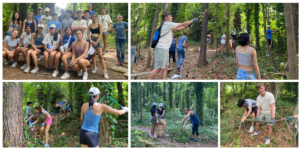
Durham Community Preschool Invasive Removal, August 21. NCWF and Duke University students tackled invasive plants growing in Durham Community Preschool’s outdoor classroom. The effort helped prepare the learning space for the upcoming school year.
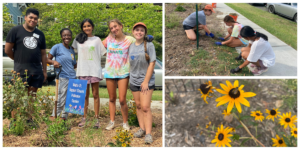
Pollinator Garden Workday with Activate Good, August 25. NCWF and Activate Good joined forces to tackle a garden workday at Watts Baptist Church in Durham. This is a part of an ongoing project to turn the historical campus near downtown Durham into a wildlife sanctuary.
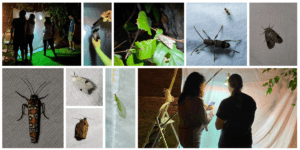
Evening Moth Discovery, August 25. Community scientists of all ages came together to observe moths and other insects at night! Observations counted towards ecoEXPLORE’s Moth Badge observations and NCWF’s NC Coastal Plain Summer Biodiversity iNaturalist project.
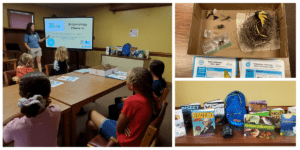
ecoEXPLORE Entomology Check-In, August 26. ecoEXPLORERs joined NCWF, Pocosin Lakes NWR and Tyrrell County Library for an Entomology Check-In where participants shared their observations from this badge season and helped identify moths and other insects that were observed the night before.
Written by:

– Tara Moore, NCWF Director of Conservation Partnerships

– Luke Bennett, NCWF Conservation Coordinator
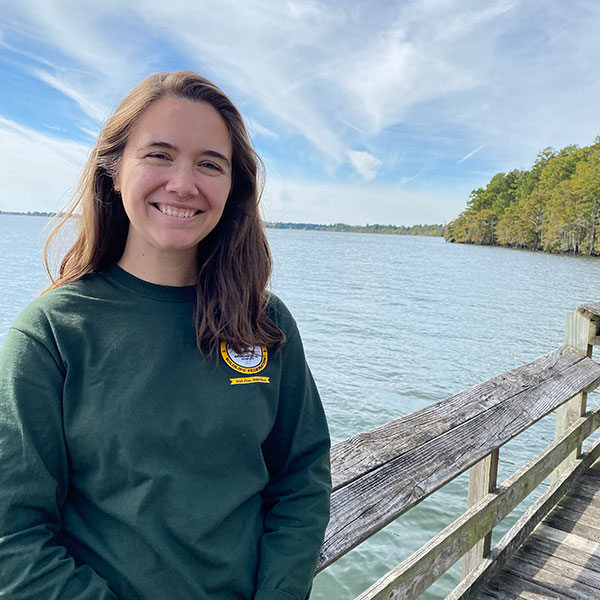
– Laura Frazier, Refuge Community Organizer


